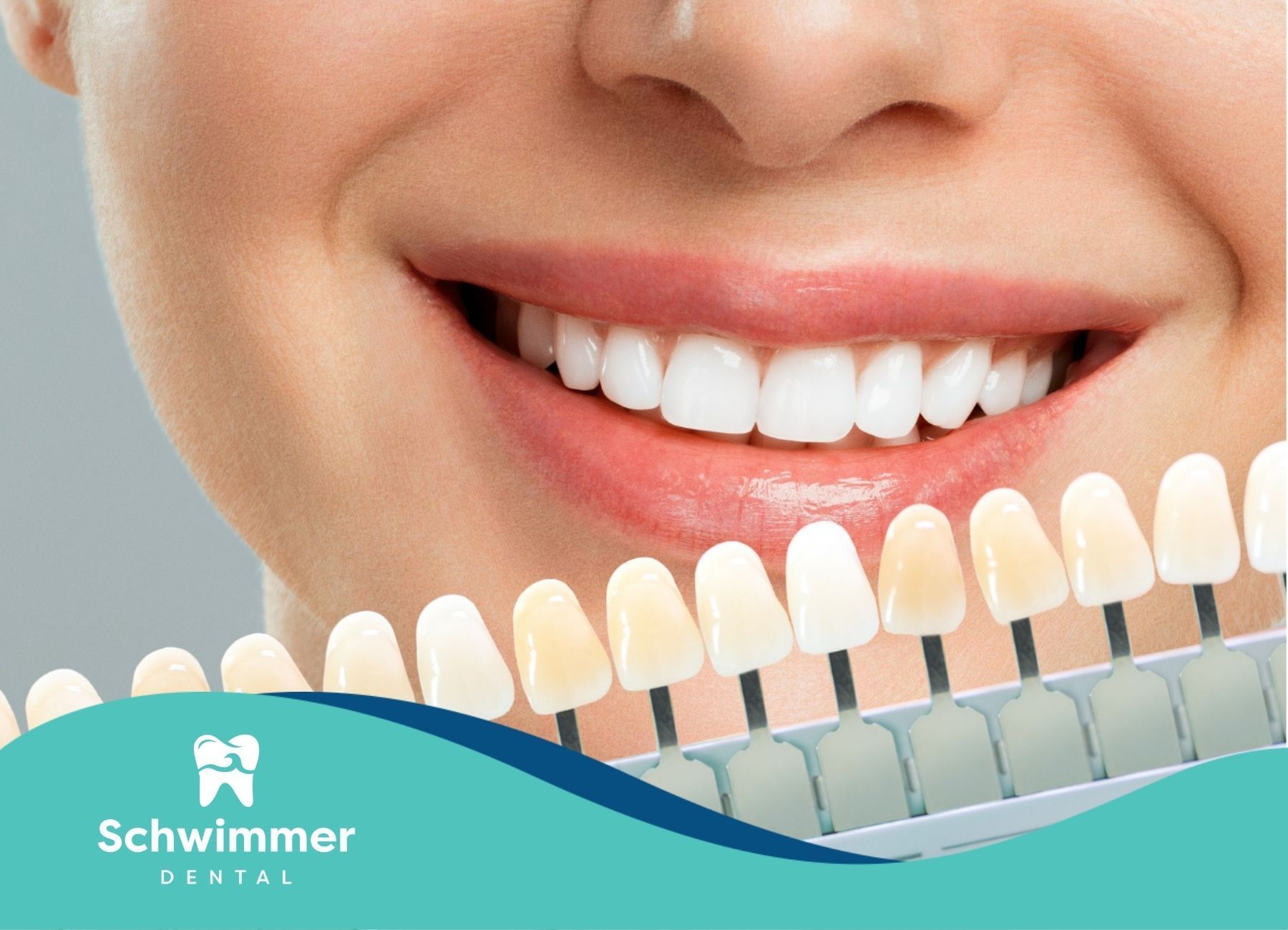Does Green Tea Stain Your Teeth? What You Should Know Before Your Next Cup
As a dental professional, I’m often asked whether green tea stains teeth—and the short answer is yes, it can. But that doesn’t mean you have to give it up! Green tea has incredible health benefits, and in my experience, you can absolutely enjoy it and keep your smile bright.
In this post, I’ll walk you through how green tea affects your enamel, how it compares to other staining beverages, and how we help our patients prevent those stains from settling in.
How Green Tea Impacts Tooth Color
Green tea, like many other teas and wines, contains natural plant compounds called tannins. Tannins give green tea its distinct bitter taste and astringency—and they’re also the sneaky reason your teeth might look a little dull over time.
When tannins meet your saliva, they bind to proteins and form a sticky film on your teeth. That film acts like a magnet for food particles and pigments, leading to gradual discoloration. Left unchecked, this can turn into noticeable yellowing or graying of your teeth.
Why Does Green Tea Stain Teeth in the First Place?
The culprit? You guessed it—tannins. When you drink green tea, tannins cling to the enamel (the protective outer layer of your teeth). This creates a rough surface where pigments from your food and drinks can settle.
Now, not everyone’s teeth are affected in the same way. How frequently you drink green tea, your daily oral care habits, and even your enamel’s porosity or genetic makeup all play a role. The good news? Understanding this process gives you power over it.
Is Green Tea Worse Than Coffee or Wine for Stains?
Not at all. Compared to beverages like black tea, red wine, and coffee, green tea actually has a lower staining potential. Take a look at this comparison:
So yes, green tea can stain—but it's definitely not the biggest offender.
How to Enjoy Green Tea Without Sacrificing Your Smile
Here’s the great part: You can still reap all the health benefits of green tea without worrying too much about teeth discoloration. It just takes a little extra care.
Practice Effective Oral Hygiene
This is the foundation. We recommend brushing your teeth twice a day with a fluoride toothpaste, especially after drinking green tea. A soft-bristled toothbrush works best to gently remove surface stains without harming enamel.
Don’t skip the floss—daily flossing clears food particles and plaque from between teeth, where a toothbrush can’t reach. And rinsing with an antibacterial mouthwash adds another layer of protection. These simple routines are your first line of defense.
Pick the Right Type of Green Tea
Not all green teas are created equal when it comes to staining. We advise choosing green teas with lower tannin levels and higher concentrations of catechins—natural antioxidants that can actually help reduce stain formation.
Watch your brewing time too. The longer you steep your tea, the higher the tannin and acid content. Keep it short and sweet to protect your enamel.
Should You Add Milk?
Some studies suggest that adding milk to tea can bind to tannins and slightly reduce staining. However, I usually caution patients that milk can add sugars and proteins to your tea, which come with their own dental risks if not cleaned off properly.
It’s not a magic fix—focusing on consistent oral hygiene is far more effective.
Don’t Skip Your Dental Cleanings
One of the best things you can do to maintain a white, healthy smile is come in regularly for professional dental cleanings. No matter how great your at-home care is, plaque and stains can build up over time.
We use specialized tools and techniques that gently polish away surface discoloration and help restore your enamel’s natural shine.
Conclusion
As much as I love the health perks of green tea, I know it’s no fun to feel self-conscious about your smile. The good news? You don’t have to give up your favorite tea to keep your teeth looking their best. With smart habits—brushing, flossing, rinsing, choosing the right type of tea, and seeing your dentist regularly—you can absolutely enjoy green tea and maintain a bright, confident smile.
At Schwimmer Dental, we believe you shouldn’t have to choose between a healthy lifestyle and a bright smile. Whether you’re concerned about stains, enamel health, or just need a friendly check-up, we’re here to help.
Ask us about our affordable membership plans, which include professional cleanings, whitening discounts, and year-round dental support to keep your smile stain-free and strong.
📧 Email us at office@schwimmerdental.com
📞 Or call us at (848) 279-4727
📍 Visit us at: 1115 Arnold Ave, Point Pleasant, NJ, 08742
We’re always accepting new patients—and your healthiest, brightest smile starts here.
Frequently Asked Questions
Does adding milk to green tea reduce its staining ability?
Yes, adding milk may slightly reduce green tea’s staining power by binding to tannins. But don’t rely on milk alone—daily brushing and professional cleanings are still your best defense.
How often should I clean my teeth if I drink green tea every day?
If green tea is part of your daily routine, we recommend brushing at least twice a day with a fluoride toothpaste and flossing once daily. Rinsing after drinking can also help minimize stain buildup.
Are there any alternatives to green tea that don’t stain teeth?
Yes! Herbal teas like chamomile or hibiscus tend to have fewer tannins and are much gentler on your enamel. They're a great alternative if you're looking to cut back on stains.
Sources:
https://www.researchgate.net/publication/384359765_Effects_of_tea_and_coffee_on_tooth_discoloration
https://pubmed.ncbi.nlm.nih.gov/25040739/
https://pmc.ncbi.nlm.nih.gov/articles/PMC10848561/
https://pmc.ncbi.nlm.nih.gov/articles/PMC9683888/
https://my.clevelandclinic.org/health/symptoms/10958-tooth-discoloration



